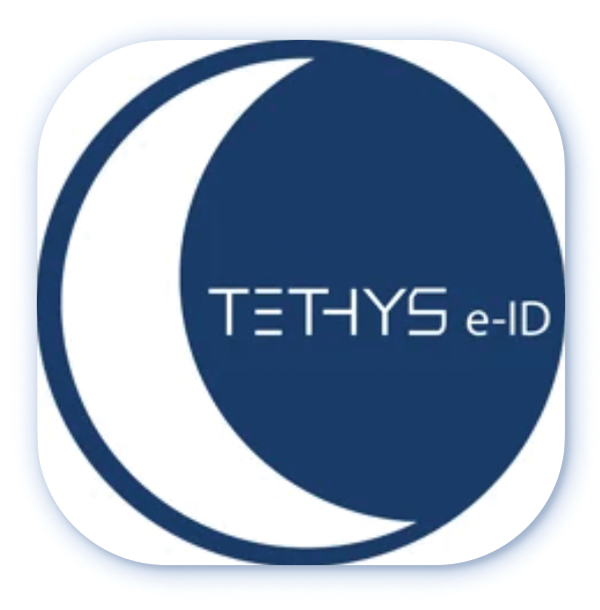A University of Waterloo graduate has co-founded Tethys e-ID — a digital identification app which aims to make sharing personal identification more convenient, efficient and secure.
Founded by UW alum Ben Janetos and University of Liverpool graduate Ulysses Koudou, Tethys e-ID works through a quick scan of a QR code on a user’s phone and is working to help users’ wallets go green.
“It really is the time to be rolling out products like this, to digitize, with a focus on reducing the need for plastic and paper identification validation,” Janetos said. “This is just one more step toward helping environmental causes.”
According to a study by the World Economic Forum, around 8 million pieces of plastic end up in the world’s oceans every single day. This plastic pollution has devastating impacts on marine ecosystems and the wildlife within them, as wildlife ingest plastic or become entangled. Plastic identification cards may end up as microplastics, or plastic pieces that are less than five millimetres long, which have equally traumatic impacts on the world’s marine ecosystems, as they are often ingested and have toxic impacts on wildlife.
Once you download the free app, which is available for android and Apple devices, users will create a profile by taking a profile photo to capture their biometrics. Then, users are able to upload photos of their identification, such as the user’s driver’s licence, passport, health card and so on. In the background, several artificial intelligence checks will be done to ensure that all identifications belong to the singular profile. Once everything is validated, the information is then available through encryption to the mobile app in the form of a randomly generated number, which allows those who scan it to read that information, but only the information they require.
The app only allows certain identifications to be read by certain companies that partner with Tethys by scanning the unique barcode. For instance, a bar will only be able to gain access to a certain set of information, such as your driver’s licence, while a financial institution will be able to gain access to another set of information which may include other forms of identification.
When it comes to security of a user’s personal identification, Koudou ensures that it is as secure, if not more secure, as holding that identification in your physical wallet. “Data is protected within the database and as it moves from one place to another,” Koudou said, adding that data is protected by encryption. There are also other background encryptions at play that will protect the user’s personal information.
Tethys e-ID is currently rolling out in businesses in the Kitchener-Waterloo region, as well as within the Greater Toronto Area, with an interest especially in university campuses. If adopted on the University of Waterloo campus, Tethys e-ID would allow students to have their student identification cards available through the app. The convenient, more environmentally friendly, accessible service requiring a simple scan to gain access to necessary information, could very much benefit students.
Most recently, the company has been working to develop the ability to act as a vaccine passport. The government has begun rolling out their own vaccine passport application this week and so during this transition, Tethys e-ID is offering an all-in-one service, with both a user’s identification and vaccine proof available through the one app.
As of now, using Tethys e-ID does not erase the need to carry around a physical copy of a user’s identification, as some establishments require a physical copy. Though, as Janetos expressed, it is the vision that one day, Tethys e-ID can replace the need for physical identification cards all together.
































